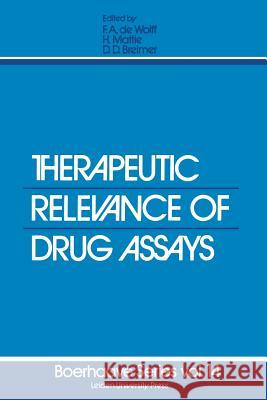Therapeutic Relevance of Drug Assays » książka
Therapeutic Relevance of Drug Assays
ISBN-13: 9789400995857 / Angielski / Miękka / 2011 / 224 str.
The desirability of quality-assay of ingestable or imbibable material has resulted in an established procedure in advanced countries. Testimony to its necessity was borne by the scandal of chateau-bottled Bordeaux crus classes a few years ago, a litigation instigated by the disillusioned consumers who either on the basis of absence of the expected inebriate state, or of the olfacto-gustatory caress by the bouquet or full-bodied lingering pharyngeal sensation, decided to strike a paranoid attitude, which ultimately proved to be justified. When one proceeds from sheer pleasure to dire necessity, the question of what happens to ingested medication assumes quite portentous features. Testimony is borne to this by the transitional stage, at which one is faced with the legal consequences of the basically illegal alcohol-respiration test, based on the relationship between the amount of ingested alcohol and the C Hs OH concentration in expired air or in venous blood, a wholly uncon 2 stitutional terror, in view of the Rome treaty signed by the Western coun tries, which says that nobody should be required to cooperate in procedures aimed at providing him guilty. On top of this, the lamentable fact is observ able, that among the professio nobile there are even those who took the oath of Hippocrates and lend their hands, not to cure (as they promised), but to perform a cubital vein puncture in order to prove someone, who is not their patient, guilty."











